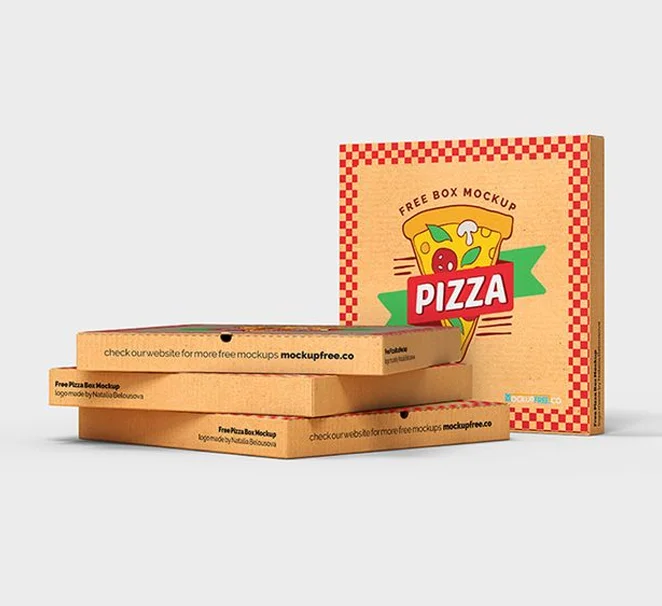As sustainability continues to gain momentum across industries, businesses are constantly seeking innovative solutions to reduce their environmental footprint. The food packaging sector is no exception, and one of the standout products making waves in this area is molded fiber trays. Made from renewable and biodegradable materials, these trays have emerged as an eco-friendly alternative to conventional plastic packaging. With growing concerns over plastic waste and its impact on the environment, molded fiber trays provide a compelling solution, combining functionality, sustainability, and affordability.
In this article, we explore the eco-friendly advantages of molded fiber trays for food packaging. We will examine how these trays are produced, their environmental benefits, and how they contribute to sustainable practices within the food industry. As consumers and businesses alike become more eco-conscious, molded fiber trays stand out as a versatile and responsible choice in food packaging.
Sustainable Raw Materials for Molded Fiber Trays
The production of molded fiber trays starts with natural fibers such as recycled paper, cardboard, and agricultural byproducts, including sugarcane pulp and wheat straw. These materials are renewable, biodegradable, and recyclable, providing a stark contrast to plastic packaging, which is derived from fossil fuels. The use of sustainable raw materials helps reduce the reliance on non-renewable resources, making molded fiber trays a green alternative for businesses seeking to minimize their environmental impact.
Furthermore, the production of molded fiber trays contributes to waste reduction by utilizing agricultural waste products that might otherwise end up in landfills. Instead of relying on harmful synthetic fibers, the eco-friendly materials used in the production of molded fiber trays can be sourced locally, reducing transportation emissions. This closed-loop system supports sustainable agriculture and promotes responsible consumption of resources.
Reduction of Plastic Waste in Food Packaging
Plastic waste has become a global environmental crisis, particularly in the food packaging sector, where single-use plastics are prevalent. Molded fiber trays present a viable solution to this problem by offering a biodegradable alternative that decomposes naturally within a short period. Unlike plastic trays, which can take hundreds of years to break down, molded fiber trays typically decompose in just a few months when exposed to the right environmental conditions.
By replacing plastic with molded fiber trays, the food industry can significantly reduce the amount of plastic waste generated, particularly in single-use packaging. This shift is especially crucial in countries struggling with plastic pollution in oceans and waterways. Molded fiber trays can also be composted, further contributing to a circular economy where waste is minimized, and valuable organic matter is returned to the soil, enriching it for future use.
Energy Efficiency in the Manufacturing Process
The manufacturing of molded fiber trays is relatively energy-efficient compared to other forms of food packaging. The production process typically involves pulp molding, where the raw fibers are mixed with water to form a slurry, which is then molded into trays using heat and pressure. This method consumes less energy compared to the production of plastic packaging, which requires high temperatures and petrochemical inputs.
Additionally, molded fiber trays can be produced using a variety of energy sources, including renewable energy options such as solar and wind power. The low energy consumption during production, combined with the use of renewable energy, reduces the carbon footprint associated with the manufacturing of food packaging. This makes molded fiber trays an ideal choice for companies aiming to meet sustainability goals and reduce greenhouse gas emissions.
Consumer Appeal and Market Demand for Eco-Friendly Packaging
As consumer awareness of environmental issues continues to rise, there is a growing demand for sustainable packaging solutions. Molded fiber trays not only fulfill this demand but also offer an attractive alternative to traditional plastic packaging. Consumers increasingly prefer eco-friendly products, and businesses that use molded fiber trays are able to align themselves with this shifting consumer preference.
Brands that adopt molded fiber trays can boost their image as environmentally responsible companies, building loyalty and trust with eco-conscious consumers. This growing demand for sustainable food packaging is reflected in the increasing adoption of molded fiber trays across various sectors, from takeout restaurants to grocery stores. As more companies choose eco-friendly alternatives, molded fiber trays are becoming a key player in the drive toward greener packaging solutions in the food industry.
Practical Advantages of Molded Fiber Trays in Food Packaging
Beyond their environmental benefits, molded fiber trays offer several practical advantages for food packaging. These trays are lightweight, durable, and resistant to moisture, making them suitable for a wide range of food products. Whether used for fresh produce, frozen meals, or takeaway dishes, molded fiber trays can effectively protect food items during transportation and storage.
Additionally, molded fiber trays are customizable, allowing businesses to design packaging that suits their specific needs. They can be molded into various shapes and sizes, ensuring they fit the product perfectly. Their versatility also extends to printing options, enabling companies to add branding or product information without compromising the eco-friendly nature of the packaging. This combination of practicality and sustainability makes molded fiber trays a competitive choice in the food packaging market.
Conclusion
Molded fiber trays offer a range of eco-friendly advantages that make them a standout choice for businesses seeking to reduce their environmental footprint while still meeting the functional demands of food packaging. From their use of sustainable raw materials to their energy-efficient production process and ability to reduce plastic waste, these trays provide a responsible alternative to traditional packaging options. As consumer demand for sustainable products grows, molded fiber trays are poised to become an integral part of the future of food packaging. By embracing molded fiber trays, companies can contribute to a more sustainable and eco-conscious food industry, benefiting both the environment and their bottom line.





